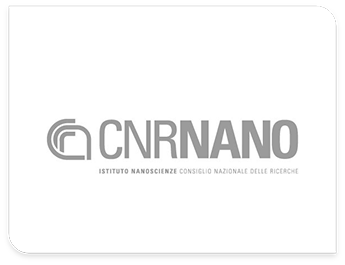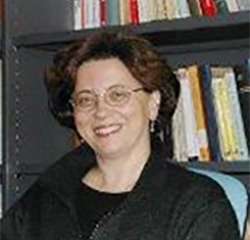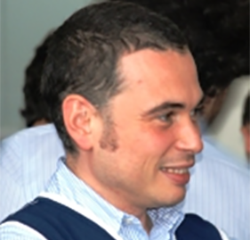
CNR (National Research Council) is the main public research institution in Italy, gathering 110 institutes distributed in the entire country. The Nanoscience Institute of CNR counts about 200 researchers, with focus on frontier research in nanoscience and nanotechnology including solid state quantum technologies. It comprises two Centres (NEST in Pisa and S3 in Modena), strongly intertwined with the local universities, and can rely on effective support facilities. Research activities of the Institute include: the synthesis and the fabrication of nanostructures and nanodevices, the experimental and computational-theoretical study of their properties and functionality, and of their interfaces, together with their integration in complex functional systems. Publications on international peer-reviewed journals amount to about 300 per year, of which about 17% have Impact Factor ≥ 7. The Institute is currently running about 12 European projects, in addition to several National and regional projects and industrial partnerships, and five EU-ERC projects.
The Nanoscience Institute in Modena has a strong tradition in theoretical and computational nanoscience, where more than half of its 70 researchers are currently involved. Activities are both in the development of novel theoretical methods and application of existing theories to systems and problems of interest for the multidisciplinary nanoscience community. In addition to in-house developed codes, we make use of open source ab-initio codes for materials simulation and design (Quantum Espresso, Yambo, WanT): several of its researchers are among the main developers.
The Centre has a strong expertise in high-performance computing and is especially active in code optimization and evolution towards extreme scale computing, of special relevance in order to afford large-scale predictive simulations of nanostructures and electron interactions. In this direction, the Nanoscience Institute of the CNR coordinates the MaX European Centre of Excellence, an e-infrastructure devoted to ‘Materials modelling, simulation and design at the exascale’.
Key people

Elisa Molinari Professor CNR - Nanoscience Institute
Dept. of Physics, Informatics and Mathematics - University of Modena and Reggio Emilia
Elisa Molinari is a Full Professor of Condensed Matter Physics at University of Modena and Reggio Emilia, and coordinates the Modena centre of CNR-Nano. She is currently member of the Scientific Board of CINECA, the Italian Supercomputing Centre; the Scientific Advisory Board of both Fritz-Haber-Institute (Max-Planck Gesellshaft, Berlin) and Max-Planck Institute for the Structure and Dynamics of Matter (Hamburg); the Council of ESRF (Grenoble); the Executive Committee of the Forum on International Physics of APS. She has been director the National Institute of Condensed Matter in Italy (INFM), and chaired the Steering Board of Emilia-Romagna Region High Technology Network. She has been member of the OECD Working Party on Nanotechnology, of the EU FP7 NMP Advisory Board and Program Committee, and of ERC AdG Evaluation Panels. She is Fellow of the American Physical Society.
Her main research interests are in computational nanoscience, in the theory of structural, vibrational, electronic and optical properties of low-dimensional structures and in the simulation of advanced nanodevices. Molinari is the author of 270+ papers in international journals with 8500+ citations; h-index = 47 (ISI-WoS). She has been PI or co-PI of several EU and national projects/units, including FP7-SQID, an early collaborative effort on ‘Semiconductor based implementation of quantum Information devices’. She is presently Director of the H2020 e-infrastructure ‘MaX’ (www.max-centre.eu).
Role in IQubits: CNR PI.

Filippo Troiani Researcher
CNR - Nanoscience Institute
Dr. Filippo Troiani is a Research Scientist at Istituto Nanoscienze of CNR (CNR-Nano) in Modena since 2010. He received his PhD in physics in 2001 from the University of Modena and Reggio Emilia. He has been postdoc at the Universidad Autonoma de Madrid and visiting scientist by the group of Daniel Loss at the University of Basel. His research activity is focused on quantum effects (e.g., entanglement and decoherence) in solid state and molecular spin systems, as well as on the spin-based implementation of quantum computing and quantum sensing. On these and related topics, he has been giving courses at the Master degree and at the PhD School of the University of Modena and Reggio Emilia since 2010. He has co-authored more than 85 articles in international peer-reviewed journals, which have received 2500+ citations (H-index 23). His tasks within the project will include the optimization of the quantum gates and of the qubit read out.
Role in IQubits: CNR Co-PI. Simulation and optimization of quantum gates and qubit readout.

Andrea Bertoni Researcher
CNR - Nanoscience Institute
Dr. Andrea Bertoni is a Research Scientist at the Istituto Nanoscienze of the CNR (CNR-Nano) in Modena since 2003. He received his PhD in physics in 2001 from the University of Modena and Reggio Emilia. He has been visiting scientist at IBM Watson Research Center (NY, USA) and at Departament de Química Física i Analítica, Universitat Jaume I (Castelló de la Plana, SP), post-doc at DEIS of Bologna University, and research lecturer at FIM department of the University of Modena and Reggio Emilia. His research activity is focused on the modelling of electronic states in low-dimensional structures and quantum transport of carriers in semiconductor nanodevices, with emphasis on correlation effects. He co-authored about 100 articles in international journals, receiving ~1600 citations (H-index 22). He is an expert in high-performance computing, he has been principal investigator of several HPC projects and he has taught parallel computing and computational physics courses since 2006.
Role in IQubits: Numerical modeling of correlated electronic states in FDSOI devices. Software development.

Arrigo Calzolari Researcher
CNR - Nanoscience Institute
Dr. Arrigo Calzolari is a permanent researcher at CNR-NANO in Modena since 2010. He has been adjunct visiting professor at Physics Dept., University of North Texas (Denton TX, USA); lecturer of general physics at University of Modena and Reggio Emilia; and member of the AFLOW consortium for material Materials Genomics (Duraham NC USA). Calzolari coordinates the research group “ab initio materials simulations for optoelectronics and energy - AMUSE”, (amuse.nano.cnr.it), which operates in the field of condensed-matter and solid-state physics, performing ab initio simulations at the DFT level and beyond. Current research activity focuses on (i) the ab initio study of the structural, optoelectronic, vibrational, and transport properties of materials, nanostructures, and interfaces for nanotechnology applications; (ii) the development and the implementation of original methods for the evaluation of the electronic and transport properties in nanostructures. AC is author of more than 100 scientific papers published in international peer-reviewed journals and book chapters (h-index 30 WoS source). Presently, AC is Coordinator of the EU projects INTERSECT (2019-2022), funded within the H2020 program. Previously he coordinated and participated to national and EU scientific and HPC projects.
Role in IQubits: First principles DFT simulations of doped Si and nitride films and interfaces, as active channels of studied FET.